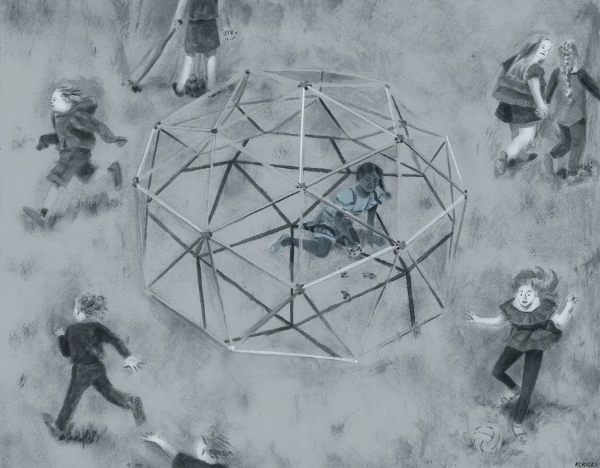Our Priorities
-

Archival Justice: Combatting Erasure of Black Girlhood
Focus: BGKB is committed to combating the historical erasure of Black girls from cultural and historical archives. This campaign seeks to ensure that Black girls' stories, histories, and contributions are preserved, represented, and celebrated in both public and private archives. Archival justice includes addressing the systematic exclusion of Black girls from mainstream narratives, empowering them to document their own histories.
Key Actions:
• Black Girlhood Archive: Build and maintain a robust archive dedicated to preserving oral histories, cultural artifacts, and personal narratives from Black girls and women.
• Advocacy for Inclusive Archiving: Advocate for the inclusion of Black girls' stories in academic research, public history, and museum collections to correct historical omissions and ensure their contributions are visible.
• Community Archiving Projects: Empower Black girls and communities to create their own archival projects, offering training in preservation, oral history techniques, and digital storytelling.
• Narrative Change Through Media Production: Produce and support media projects (films, podcasts, zines, and digital content) that amplify and center the voices and stories of Black girls, challenging harmful stereotypes and promoting a more accurate representation of their experiences.
-

Reproductive Justice: Advocating for the Autonomy and Health of Black Girls
Focus: BGKB advocates for reproductive justice, emphasizing the need for Black girls to have access to comprehensive reproductive health education, services, and the freedom to make decisions about their bodies without stigma or interference. This includes ensuring that Black girls have the tools to understand and exercise their reproductive rights in a society that often ignores or misrepresents their needs.
Key Actions:
• Sexual and Reproductive Health Education: Provide culturally relevant education about sexual health, consent, and reproductive rights, empowering Black girls to make informed choices about their bodies.
• Legislative Advocacy for Health Access: Advocate for policies that protect Black girls’ access to reproductive healthcare, such as contraception, abortion, and prenatal care, ensuring they are not criminalized or stigmatized for their choices.
• Combatting Medical Misinformation: Work to challenge harmful stereotypes that disproportionately impact Black girls, especially regarding their sexual and reproductive health, through educational outreach and policy reform.
• Advocating for Clean Products & Accessible Healing Modalities: Promote access to clean, safe products for Black girls, including organic menstrual products and wellness items. Advocate for accessible healing modalities (e.g., therapy, holistic care) that center the needs and well-being of Black girls, ensuring they have the resources to care for their health holistically.
-

Adultification & Endangerment: Protecting Black Girls from Harm
Focus: This campaign focuses on combating the adultification of Black girls, a process where they are perceived and treated as older than they are, leading to increased vulnerability to discrimination, criminalization, and abuse. This policy priority aims to protect Black girls from premature adult responsibilities and the systemic harm that results from racialized gender biases.
Key Actions:
• Advocacy Against Adultification: Advocate for policy changes in schools, juvenile justice systems, and child welfare services to prevent the adultification of Black girls, ensuring they are treated with the same childhood protections as their non-Black peers.
• Endangerment Prevention: Work to create safe environments where Black girls are not over-policed or over-sexualized, particularly in educational and social spaces. This includes supporting restorative justice practices that prioritize Black girls’ safety and well-being.
• Public Awareness Campaigns: Launch educational campaigns to raise awareness about the impact of adultification and how it contributes to the criminalization and endangerment of Black girls. Promote training for educators, law enforcement, and child welfare workers to recognize and dismantle harmful stereotypes.
-

Black Girls as Land Stewards & Advocates for Food Justice
Focus: BGKB is committed to highlighting the critical role of Black girls in the movement for food justice and land stewardship. This campaign aims to empower Black girls to reconnect with their ancestral ties to land and agriculture, promoting sustainable food systems, environmental justice, and holistic well-being for their communities. This initiative also seeks to challenge historical and ongoing injustices faced by Black communities in relation to land access, food security, and environmental degradation.
Key Actions:
• Education on Land Stewardship: Develop educational programs that teach Black girls about land stewardship, sustainable farming practices, and the cultural significance of land. Partner with community gardens, local farms, and agricultural programs to provide hands-on learning experiences.
• Advocacy for Land Access and Rights: Advocate for policies that support Black communities' access to land, including the protection of Black farmers' land rights and addressing the legacy of land dispossession in Black communities. This includes fighting against land grab practices and ensuring equitable access to agricultural resources for Black girls and their families.
• Food Sovereignty and Justice: Launch initiatives that promote food sovereignty, where Black girls and their communities have control over the production, distribution, and consumption of healthy, culturally relevant foods. This could include urban farming, farm-to-table projects, and local food cooperatives.
• Highlighting Black Women & Girls in Food Justice: Celebrate and elevate the work of Black women and girls in food justice and environmental movements. Feature Black girl leaders who are making significant contributions to sustainable food systems, whether through farming, activism, or culinary arts.
• Healing through Food: Connect food justice with overall well-being, offering programs that explore how food can be a tool for healing, community building, and cultural expression. This could include offering cooking classes, food festivals, or workshops centered around plant-based eating, traditional Black foodways, and their significance.

